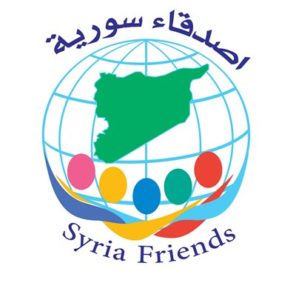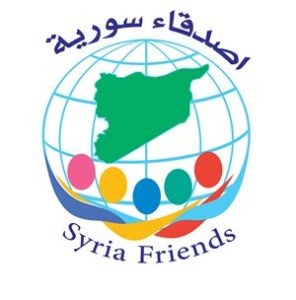The United States and other original signatories to the Iran nuclear deal will convene in Vienna next week in an effort to revive the 2015 nuclear agreement that President Biden has said he wants to see salvaged.
Representatives of Iran, France, Germany, Russia, Britain and China will convene Tuesday with two challenges on the table: how to roll back sanctions imposed by the Trump administration and bring Tehran’s nuclear program back into the limits set by the deal.
U.S. envoys will not be part of those discussions, but will be on hand for “separate contacts” with the group, according to a European Commission statement.
State Department spokesman Ned Price said “we do not anticipate” direct U.S.-Iran talks in Vienna, but “the United States remains open to them.”
He said the meeting will look at both the “nuclear steps that Iran would need to take” to regain compliance with the nuclear deal and “the sanctions relief steps that the United States would need to take in order to return to compliance as well.”
“We don’t anticipate an immediate breakthrough as there will be difficult discussions ahead,” he added. “But we believe this is a healthy step forward.”
Iranian Foreign Minister Mohammad Javad Zarif also said there would be no direct meeting between Iran and the United States. “Unnecessary,” he tweeted as Iranian officials stood firm on Tehran’s demand that the Biden administration first ease sanctions on Iran as a precondition to dialogue.
The Trump administration withdrew from the nuclear deal in May 2018, reimposing sanctions on Iran as part of a “maximum pressure” campaign against Tehran.
Unable to reap the economic benefits of the deal, Iran has argued that it should not be bound by the limits it put on its nuclear program, which includes uranium enrichment for reactors, and has gradually breached its commitments.
In recent months, Iran has increased the quantity and quality of uranium it is enriching and also informed the Vienna-based International Atomic Energy Agency that it had begun working on equipment needed to produce uranium metal, which can be used to produce nuclear warheads. Iran’s leaders have long said the country does not seek nuclear arms.
Previous efforts to negotiate a U.S. return to the deal have been confounded by arguments over whether Tehran or Washington should take the first step.
The two sides are also laboring against the legacy of the Trump administration’s blitz to reimpose sanctions and add many new ones.
The issue of sanctions relief “is more complex than the nuclear issue, in part because Trump took steps explicitly aimed at making this process more difficult,” Henry Rome, a senior Iran analyst at Eurasia Group in Washington, wrote in a briefing Friday.
Biden administration officials have indicated they are willing to meet with Iran to jointly agree on a full return to compliance, without renegotiating the original deal.
Iranian officials have questioned why such a meeting would be necessary since Tehran’s terms are clear. It wants the lifting of all U.S. sanctions and has little interest in discussing other matters.
In February, hopes were dashed for a possible meeting that would be attended by the United States and Iran after Tehran said it wanted more information on what would be discussed. Both governments have faced domestic political pressure not to return to the deal.
European nations have been attempting to mediate the impasse amid concerns that the window for diplomacy may be closing. Iran is also preparing for an election in June that is expected to deliver a more hard line government and could lessen the chances of an easy return to the agreement.
Iran’s supreme leader, Ayatollah Ali Khamenei, has the final say in all major policy moves. The government, led by President Hassan Rouhani, was given the greenlight to negotiate the nuclear deal. Rouhani, however, cannot seek reelection because of term limits.
“The political space is increasingly shrinking” in both Tehran and Washington, and there is a sense of urgency, said a senior European official, speaking on condition of anonymity to discuss the sensitive negotiations. “If we don’t get there in two months, it will definitely be a bad sign.”
The official said that although U.S. officials would not directly meet with the Iranian delegation “the idea is for the Americans to be in Vienna and to be ready for this indirect negotiation.”
Any deal reached would need the approval of Khamenei, likely ensuring policy continuity after June elections, the E.U. official said.
Friday’s announcement followed a virtual meeting of Iran and deal signatories — other than the United States — earlier in the day. Participants emphasized their commitment to preserving the deal and discussed ways “to ensure the return to its full and effective implementation,” according to the E.U. statement.
The E.U. official said that the negotiators planned a new strategy that they hoped would speed a deal.
Rather than argue about whether the United States will drop sanctions first or Iran will rein in its nuclear activities, they will negotiate a list of moves for each side in parallel. The hope is that Tehran and Washington then can implement provisions at the same time.
Iranian news agencies quoted Abbas Araghchi, the country’s deputy foreign minister, who attended the online meeting, as reiterating his government’s insistence that “termination” of U.S. sanctions was the first step in reviving the nuclear agreement and getting Tehran to end its “retaliatory” measures, including increasing the quantity and quality of its enriched uranium.
There was “no need for any negotiations on America’s return to the JCPOA,” he added, referring to the nuclear agreement. “The path ahead of the U.S. is fully clear.”
Zarif said that the aim of the Vienna meeting would be to finalize sanctions lifting and nuclear issues ahead of a “choreographed removal of all sanctions, followed by Iran ceasing remedial measures.”
Negotiators expect to focus exclusively on reviving the nuclear deal, not in expanding talks to try to rein in Iranian activity in other areas such as military advancements.
That idea had been floated in Washington and in other capitals. But diplomats ultimately decided that the narrower focus is the best way to successfully revive the deal.
The more limited approach may increase criticism of Biden’s efforts among Iran critics in Washington, who say the nuclear deal has given Iran the freedom to dial up its actions as a regional troublemaker in other forums.
Source : Washington Post







